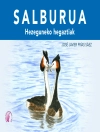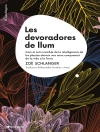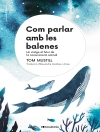The Anthropocene is a term proposed for the present geological epoch (from the time of the Industrial Revolution onwards) to highlight the role of humanity in the transformation of earth’s environment globally, has become the subject of scholarship not only in the sciences, but also in the arts and humanities as well. Ecopoetics, a multidisciplinary approach that includes thinking and writing on poetics, science, and theory as well as emphasizing innovative approaches common to conceptual poetry, rose out of the late 20th-century awareness of ecology and concerns of environmental disaster.
Collected from contributors including Brenda Hillman, Eileen Tabios, and Christopher Cokinos, and together a monument to human responsiveness and invention, Counter-Desecration is a book of ecopoetics that compiles terms—borrowed, invented, recast—that help configure or elaborate human engagement with place. There are no analogous volumes in the field of ecocriticism and ecopoetics. The individual entries, each a sketch or a notion, through some ecopoetic lens—anti-colonialism, bioregionalism, ecological (im)balance, indigeneity, resource extraction, extinction, habitat loss, environmental justice, queerness, attentiveness, sustainability—focus and configure the emerging relations and effects of the Anthropocene. Each entry is a work of art concerned with contemporary poetics and environmental justice backed with sound observation and scholarship.
Mục lục
Preface by Allison Adelle Hedge Coke
Entangled & Worldly: Approaches to Anthropocene Writing by Linda Russo
Entries
‘somewhere inbetween’: Speaking-Through Contiguity by Marthe Reed
Contributor Bio/Statements
Notes
Index
Giới thiệu về tác giả
Marthe Reed (1959-2018) was the author of five books, including Nights Reading, (em)bodied bliss and the collaborative Pleth with j hastain. She was co-publisher and managing editor for Black Radish Books, and her poems have appeared in Jacket2, Tarpaulin Sky and New American Writing, among other publications.












